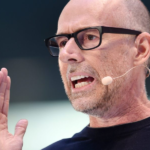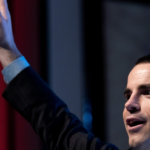“When people talk about Gen Z and the problems they’re facing with workforce readiness, I think people are primarily thinking about college-grad Gen Z,” Josh Millet, founder and CEO of pre-employment testing company Criteria, tells Fortune. “That part of the American Dream is hitting a rough patch for sure.”
“To hear Gen Z say the same thing is a collective loss of confidence in [the] college degree. I think that’s the continuation of a trend that is really pronounced,” Millet continues. “I feel like it’s really only a crisis in the U.S. and it’s because the relative value of the college degree is just plummeting.”
“AI is probably not helping…If you think about college grads and the lack of employment opportunities in that generation, yes, they’re trying to enter industries where hiring rates are just very muted right now,” Millet explains. “But I can tell you that in the U.S., Gen Z who are going into frontline roles are not experiencing these challenges.”
“It’s a perfect storm,” Millet says. “You’re having [employers] drop degree requirements at the same time you have an oversupply of college grads, a crisis of confidence in what the degree actually means in terms of workforce readiness, and that’s being internalized by the people with the degrees.”
The plummeting value of college degrees is even more pronounced when it comes to what industries are actually looking to grow. Less than half of all hiring professionals expect to hire more in 2026, according to the Criteria report, but it varies depending on sector. About 68% of hiring managers at staffing/recruiting businesses, 59% at health companies, 57% at manufacturing firms, and 50% at transportation and logistics agencies plan to hire more next year. Meanwhile, industries like technology, finance, and non-profit are anticipating to hire less than the average employer.









